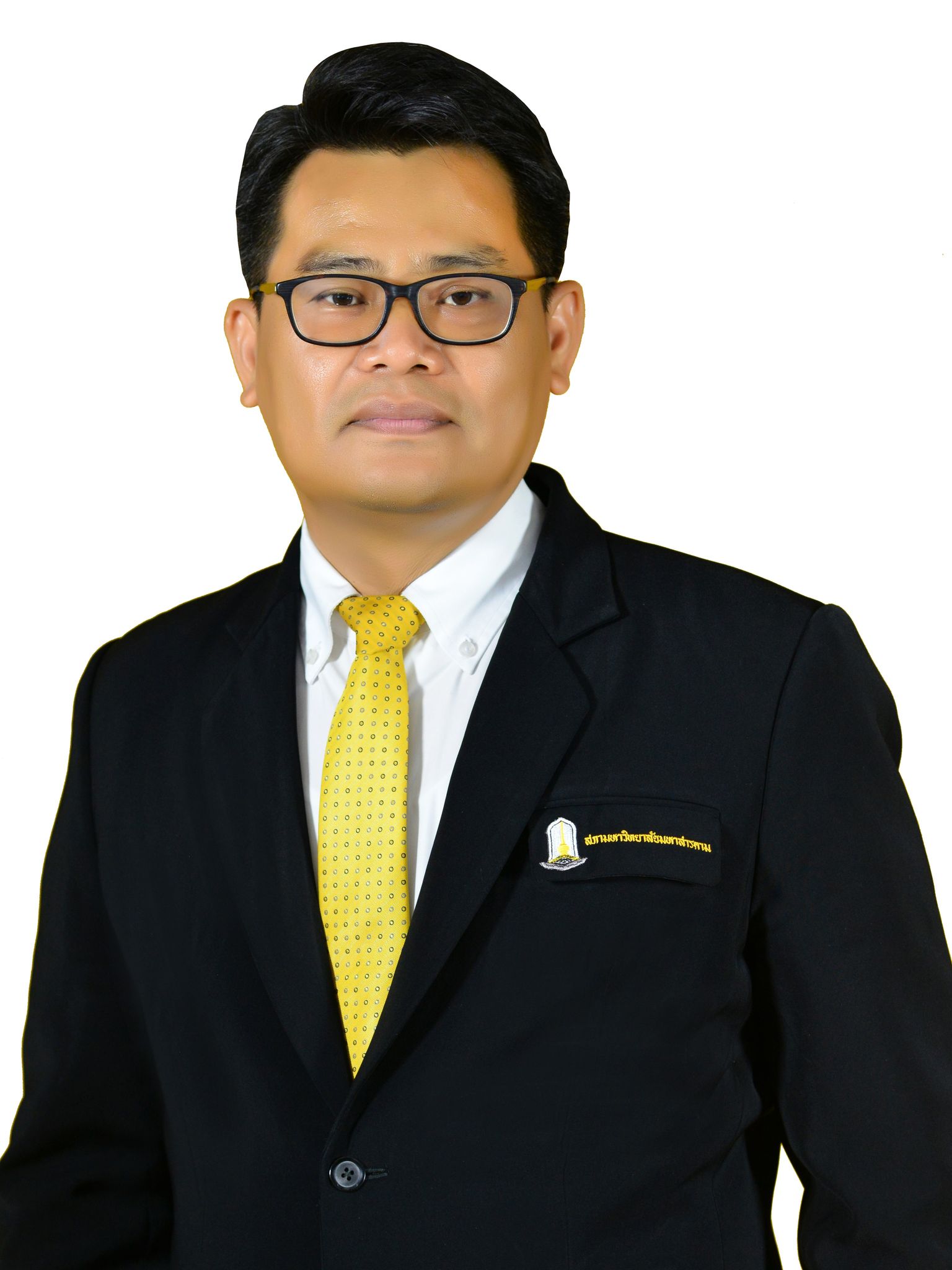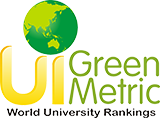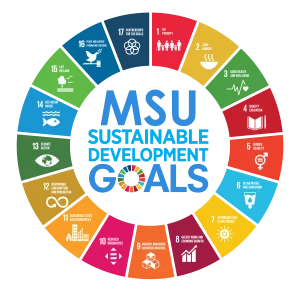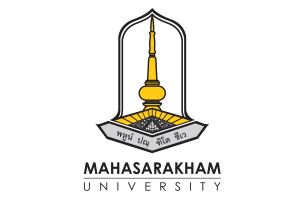
Mahasarakham University (MSU) has the great effort to move toward green university with the objectives to maintain and develop the clean, ordered, shady and pleasant landscapes, to be the green university and conserve environment and to provide decent learning atmosphere for MSU people having better quality of life. To effectively fulfill the objectives, MSU hereby announce political guideline as in the following:
Main policies


Assoc.Prof. Prayook Srivilai, Ph.D.
President of Mahasarakham University
Welcome to Mahasarakham University or MSU. I would like to extend my appreciation of your good vision considering pursuing your higher education with one of Thailand’s foremost centers of higher education.
Beyond our offering of a ‘world-class education,’ we provide a small college experience in a large university setting creating a sense of community among our students through a wide variety of special programs and the work of our most talented professors and dedicated personnel.
Secondly, the university and its staff take pride in challenging young scholars to excel academically, think critically and to live their lives in an ethical manner. The local people of the province of Maha Sarakham are justifiably proud of their University and I hold that legacy in hand with a profound sense of stewardship. While the students and staff endeavor to honor and build upon MSU’s proud heritage and local cultural traditions we also strive to move together into a future of endless opportunity for all through the promise of new knowledge and application of new technologies.
I am thrilled to be part of a learning community that is so talented, dedicated, and caring. I know you will be, too. Join us as you reflect upon your educational needs, options and goals.
Assoc.Prof. Prayook Srivilai, Ph.D.
President of Mahasarakham University
1. Land use development
– Move toward establishment of the most ultimate utilization of new land use functions, developed from emergent or restored lands.
– Move toward extensions of activity areas
– Move toward extensions of areas for learning sustainable economics and community life styles
2. Traffic system development for better accessibility
– Construct additional roads, bridges and gates
– Renovate gates and fences around the university
– Connect footpaths within the educational zone
– Move toward developing public transport systems
– Develop parking areas for motor vehicles and bicycles
– Develop sign systems, including maps, street name signs, gate signs and direction signs
– Move toward regulating the effective traffic management standard, traffic signs, on-road symbols and speed humps.
3. Landscape development for good learning atmosphere
– Establish areas for green activities and multi-purposes
– Extend footpaths and bicycle routes
– Improve landscapes along the main roads and surrounding study buildings.
– Create landmarks, natural study rooms and activity areas
– Move toward creating opened physical areas in order to encourage public participations, to facilitate development of effective administrative management, which is the driving key to successfulness, and to improve work skills and moral minds of human resource and good relationships among them.
These policies shall be announced for public acknowledgement
WASTE MANAGEMENT

Announcement of the Mahasarakham University
Subject: Reductions of Paper and Plastic Consumptions Policies
Mahasarakham University (MSU) has the great effort to minimize paper and plastic consumptions in offices for energy saving and environmental conservation. To ensure the successful implementation and public participation, Mahasarakham University hereby announced policies on the reductions of paper and plastic consumptions as in the following:
Main policies
1. Focus on and encourage participations from all segments in administrations and reductions of paper and plastic consumptions for energy saving and environmental conservations.
Reductions of paper and plastic consumptions by using 3R principles, which are Reduce, Reuse and Recycle
Use paper efficiently on both sides as appropriate
2. Toward development of effective managements on energy saving and environmental conservation for ultimate benefits and feasibility
Send electronic messages through computer network system to minimize paper and energy consumptions.
Use ecofriendly shopping bags instead of plastic bags. In case of a fewer items, avoid using the plastic bag.
3. Drive any activities or measures that endorse the significance of environmental conservation
Campaign, create awareness and promote participations in energy saving, environmental and natural resources management
ENERGY SAVING MEASURES




